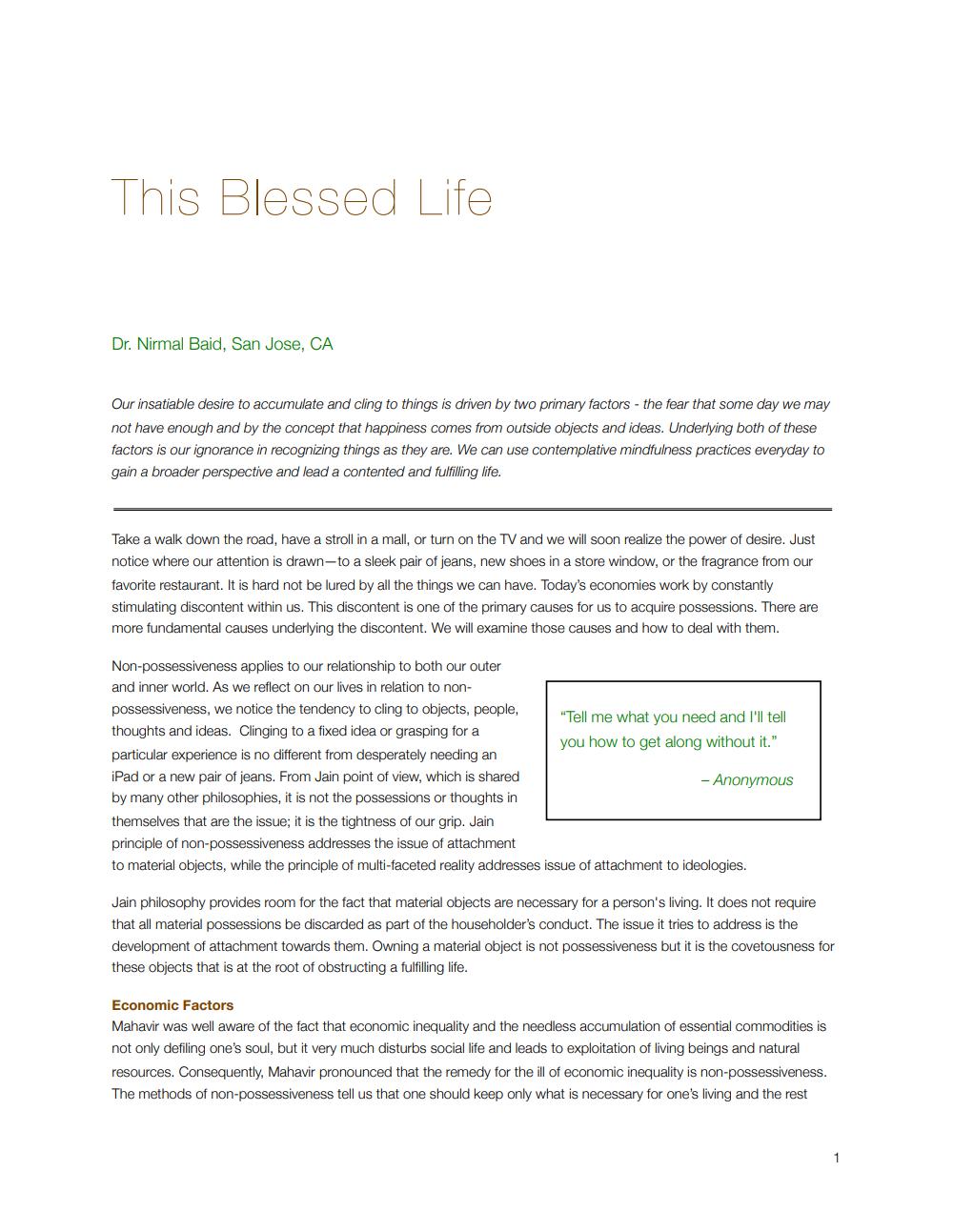________________
This Blessed Life
Dr. Nirmal Baid, San Jose, CA
Our insatiable desire to accumulate and cling to things is driven by two primary factors - the fear that some day we may not have enough and by the concept that happiness comes from outside objects and ideas. Underlying both of these factors is our ignorance in recognizing things as they are. We can use contemplative mindfulness practices everyday to gain a broader perspective and lead a contented and fulfilling life.
Take a walk down the road, have a stroll in a mall, or turn on the TV and we will soon realize the power of desire. Just notice where our attention is drawn-to a sleek pair of jeans, new shoes in a store window, or the fragrance from our favorite restaurant. It is hard not be lured by all the things we can have. Today's economies work by constantly stimulating discontent within us. This discontent is one of the primary causes for us to acquire possessions. There are more fundamental causes underlying the discontent. We will examine those causes and how to deal with them.
Non-possessiveness applies to our relationship to both our outer and inner world. As we reflect on our lives in relation to nonpossessiveness, we notice the tendency to cling to objects, people,
"Tell me what you need and I'll tell thoughts and ideas. Clinging to a fixed idea or grasping for a
you how to get along without it." particular experience is no different from desperately needing an iPad or a new pair of jeans. From Jain point of view, which is shared
- Anonymous by many other philosophies, it is not the possessions or thoughts in themselves that are the issue; it is the tightness of our grip. Jain principle of non-possessiveness addresses the issue of attachment to material objects, while the principle of multi-faceted reality addresses issue of attachment to ideologies.
Jain philosophy provides room for the fact that material objects are necessary for a person's living. It does not require that all material possessions be discarded as part of the householder's conduct. The issue it tries to address is the development of attachment towards them. Owning a material object is not possessiveness but it is the covetousness for these objects that is at the root of obstructing a fulfilling life.
Economic Factors Mahavir was well aware of the fact that economic inequality and the needless accumulation of essential commodities is not only defiling one's soul, but it very much disturbs social life and leads to exploitation of living beings and natural resources. Consequently, Mahavir pronounced that the remedy for the ill of economic inequality is non-possessiveness. The methods of non-possessiveness tell us that one should keep only what is necessary for one's living and the rest




